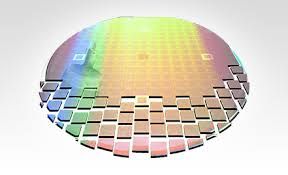ScanCAD plate A3
A3 ScanCAD Emulsion Calibration Grid
16.5" x 11.5" x 0.2" (L x W x D )
420mm x 292mm x 5mm
CALIBRATION PLATE
This precision glass emulsion calibration plate is designed for use in all of the A3 scanner based ScanCAD products. It replaces the factory supplied grid in case of damage, as well as providing a backup plate in case of breakages.
BASE MATERIAL
Emulsion : Soda Lime glass with a photographic emulsion silver halide image exposed onto the surface. The finished product has a "black" effect on clear glass, and is accurate to 12um across the entire surface. The plate is coated with a special emulsion protection to make the surface more durable.
Chrome: Soda Lime glass with a chrome etched pattern on the surface. This plate is accurate to 5um acoss the entire surface. Chrome is more robust than Emaulsio and less prone to surface scratches, although still must be handled carefully.
PRODUCTION TURNROUND
Our standard turnround is 2 weeks for this product, they are made to order and not a stock item.
INSPECTION
Full Certificate : The grid is supplied with a measured calibration certificate that is traceable back to NIST standards. Each plate is individually marked with a serial number.
If you still require clarification, please either email or click for LIVE SUPPORT.
SPECIFICATION
Emulsion Glass used for photo-masks have the following component layers: a soda lime glass base and a photosensitive emulsion layer (silver halide).
When we expose the plate in the imager, the light energy from the laser interacts with the silver halide crystals suspended in the coated gelatine layers. Development, a chemical process, converts exposed silver halide grains into metallic silver. The next step in the chemical process is fixation. The fixer stops development and removes the unexposed silver halide grains in non-image areas. Finally, the plate is washed/dried/cleaned and inspected.
The final result is a ‘black’ image coated on one side of the plate. The density of the emulsion is very high, typically Dlog of 4.5 – 5, giving it an excellent opacity to all common light sources.
One concern with emulsion glass is robustness. The Gelatine/Emulsion is relatively soft and must be handled carefully to avoid damage and scratches.
Our photo-masks are produced in conditions of 21deg C , and if dimensional accuracy is a concern when using the mask, then you must replicate these conditions in your own clean rooms and acclimatise the mask in these conditions for upto 4 hours before you intend to use it – only then can it be considered to be dimensionally accurate and stable.
FAQ's
Q: How accurate are the features, what tolerances do you work to ?
A: The calibration grid is supplied with a certificate traceable to NIST standards. Each grid is gauranteed to a tolerance of 0.5 thou / 12um











